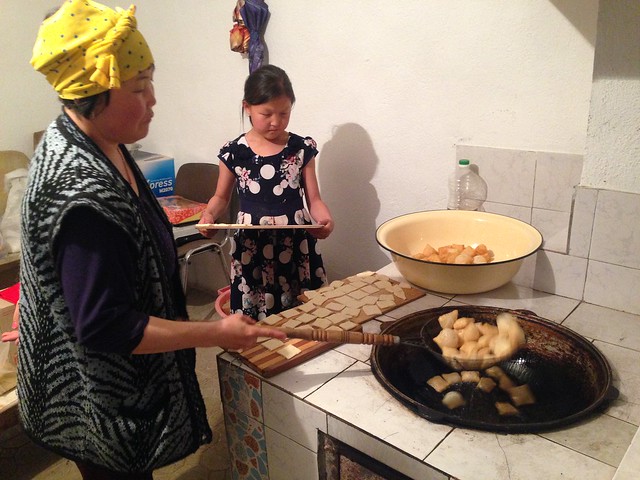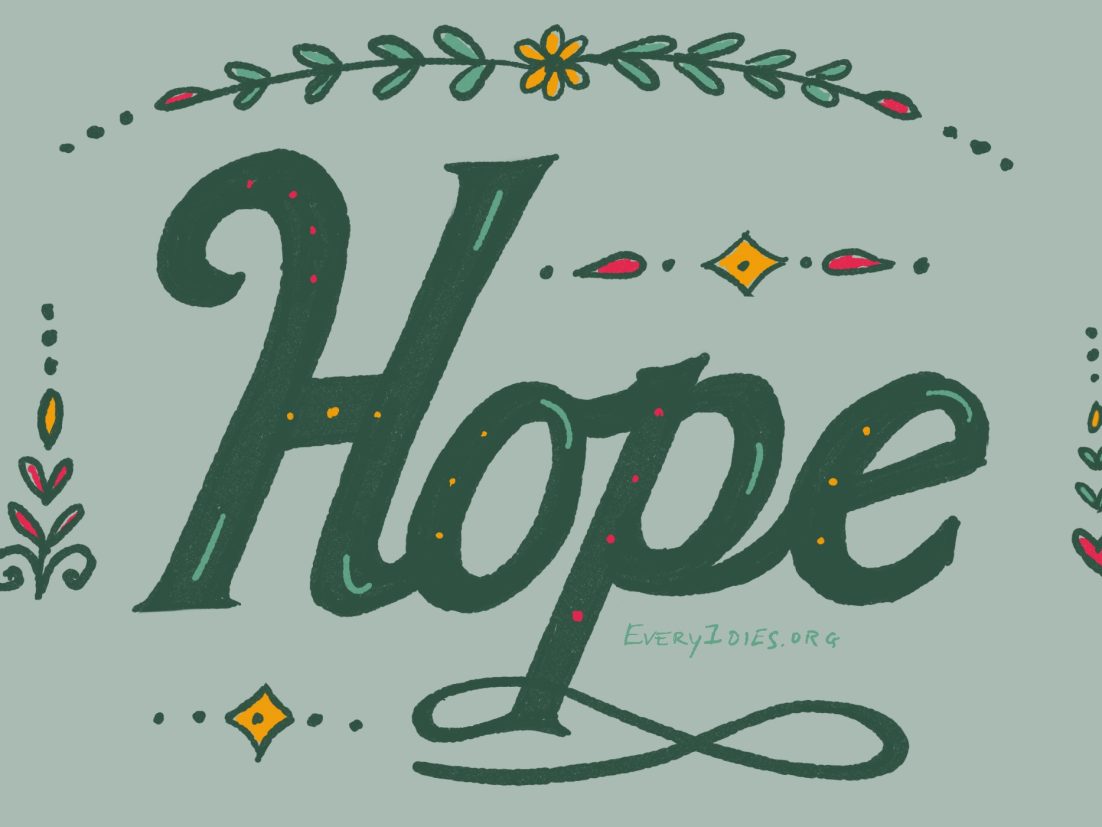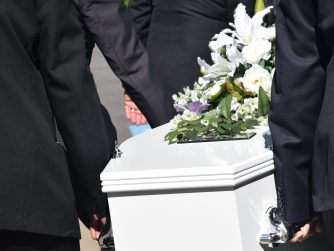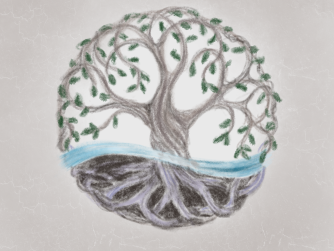We are continuing our series about what to expect during the process of dying with the topic of hope at the end of life. Learn about the importance of hope for quality of life to the very end and how you can support reality-based goals.
Affirming Life and Maintaining Hope
Two very important goals we as caregivers is to help our loved ones live until they die, and to encourage hope. First, we can help people live until they die by encouraging socialization, listening, being honest, and helping them finish any unfinished business. By offering choices regarding routines, food, and activities, we can promote continued independence and the ability to help maintain control over their lives. Of course, the degree of independence depends on our loved ones’ energy level and ability (Birchenall & Streight, 1997). Furthermore, wishes should be respected even if those wishes are inconsistent with the family’s or health care provider’s values.
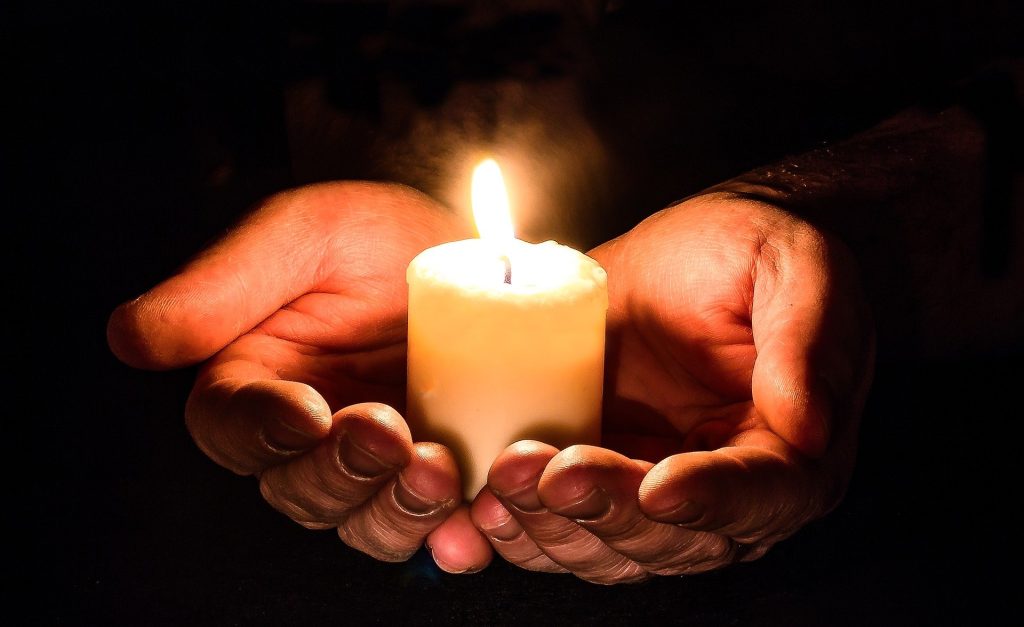
Second, hope is an important component of the emotional stages of dying and death. Kay Herth suggested that hope was “An inner power that facilitates the transcendence of the present situation and enables a reality-based expectation of a brighter tomorrow for self and/or others.” It has been a factor in helping you and your loved one continue through the difficult months and years leading up to the death. Hope is what maintains a person’s spirit and helps the person to go on; as the person is dying what he or she hopes for may change, but it does not go away. There may be hope for the “miracle” of a complete cure; it is not acceptable for the caregivers to take this hope away or to tell the patient and family to be “realistic.”
Hope: “An inner power that facilitates the transcendence of the present situation and enables a reality-based expectation of a brighter tomorrow for self and/or others“
Kay Herth
The idea that hope is ‘reality-based’ suggests that it should relate to an achievable aim or goal, rather than something which may be unattainable. Attainment – and the goal setting that underpins it – is a recurrent theme within hope theory. Goals provide structure and meaning to our loved ones, and hope provides the individual with the motivation and strength to continue to aim for and believe in those goals, even in the face of illness or hardship. An important element of supporting hope in life-limiting illness is the setting of short-term goals, ensuring that these are realistic and achievable for our loved ones.
Persons with hope have been found to live longer and have a greater quality of life than those who are hopeless.
– Birchenall & Streight, 1997
Their hopes may change from that of cure to the hope for a full night’s sleep, a visit from an important person, or for less pain. Persons with hope have been found to live longer and have a greater quality of life than those who are hopeless (Birchenall & Streight, 1997). What is important is for us to be present for the person who is dying and support the feelings that are experienced. Listening and caring for our loved one’s needs is an important thing for us to do at this time of life.
The Dying Person’s Bill of Rights
- I have the right to be treated as a living human being until I die.
- I have the right to maintain a sense of hopefulness, however changing its focus may be.
- I have the right to be cared for by those who can maintain a sense of hopefulness, however challenging this might be.
- I have the right to express my feelings and emotions about my approaching death, in my own way.
- I have the right to participate in decisions concerning my care.
- I have the right to expect continuing medical and nursing attention even though “cure” goals must be changed to “comfort” goals.
- I have the right not to die alone.
- I have the right to be free from pain.
- I have the right to have my questions answered honestly.
- I have the right not to be deceived.
- I have the right to have help from and for my family accepting my death.
- I have the right to die in peace and dignity.
- I have the right to retain my individuality and not be judged for my decisions, which may be contrary to the beliefs of others.
- I have the right to discuss and enlarge my religious and/or spiritual experiences, regardless of what they may mean to others.
- I have the right to expect that the sanctity of the human body will be respected after death.
- I have the right to be cared for by caring, sensitive, knowledgeable people who will attempt to understand my needs and will be able to gain some satisfaction in helping me face my death.
Source: From S. A. Sorrentino, Assisting with Patient Care (p. 843). St. Louis, MO: Mosby, 1999.
Resources:
Last hours of Living series:
- S2E26: What you need to know about pain, fatigue and skin at the last hours of living
- S2E27: What you need to know about eating and drinking in last hours of living
- S2E28: How to manage difficulty breathing in last hours of living
- S2E30: What you need to know about the last hours of living: Organ Failure
- S2E31: The Strange Phenomenon of Terminal Lucidity: Awakening Before Death
- S2E32: Understanding delirium in the last hours of life
- S2E33: What is Near Death Awareness, and How do I Respond?
- S2E34: What You Need to Know About Breathing at the End of Life
Other resources:
- End of Life Timeline: Signs & Symptoms of the Dying Process (Omnicare Hospice)
- Signs of Approaching Death (Hospice Foundation of America)
- List of websites for practical info about what to do after someone dies (PDF)
- Supporting hope at the end of life
Recipe of the week
This week we are traveling halfway around the globe to the Central Asian country of Kyrgyzstan, where honoring the dead involves frying balls of dough into puffy nuggets known as borsok (also spelled boorsok or borsook). The bread is a simple mixture of flour, water, salt, sugar, butter, and yeast that sizzles in oil. Peace Corps volunteer Colleen Wood recorded her host family making borsok, you can get the recipe here.
